Introduction
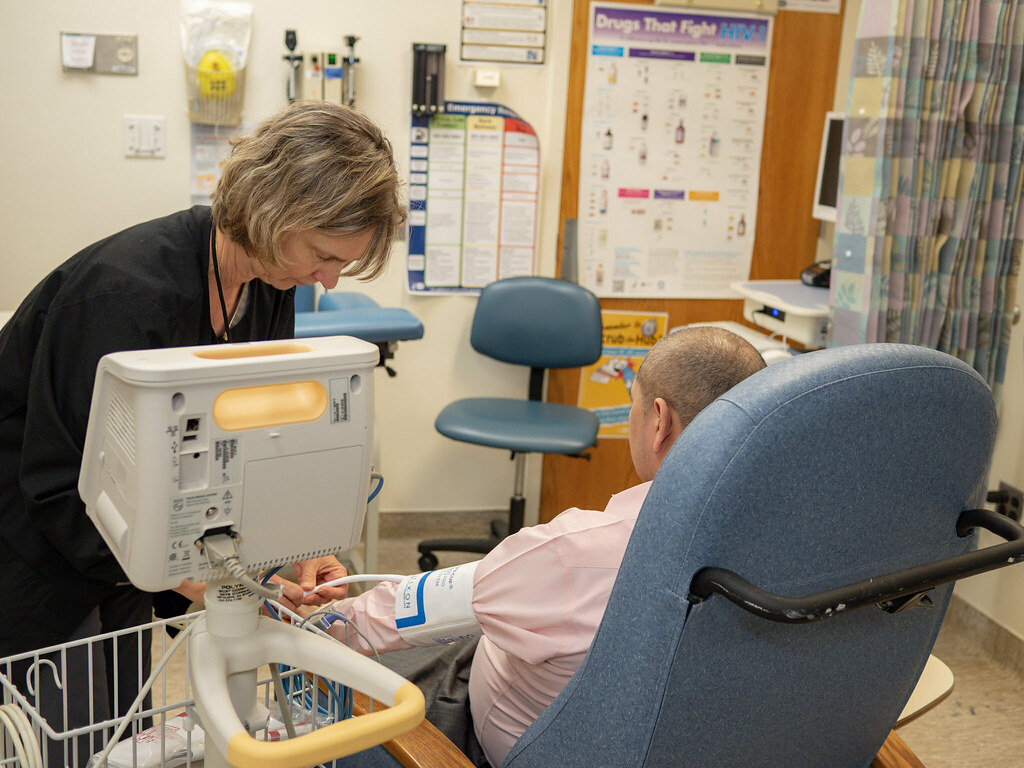
Source: Flickr
Recently, point-of-care (POC) blood testing has grown significantly, especially with the rise of decentralized diagnostics. According to the World Health Organization, decentralized testing reduces diagnostic delays and improves patient outcomes. The surge in the need for POC blood test solutions is a reflection of the broader shift of healthcare to provide immediate results outside central laboratories.
Advances in AI and automation make it possible for portable hematology analyzer devices to deliver lab-quality data within minutes. The integration of on-device intelligence with compact platforms enables clinicians to conduct accurate complete blood counts and perform differential cell counting functions at the bedside.
Modern hematology analyzer systems combine CBC and morphological analysis modules, which reduces turnaround time. However, morphological assessment at the point of care still faces challenges, especially in complex cases that require detailed microscope review.
What Is a Hematology Auto Analyzer?
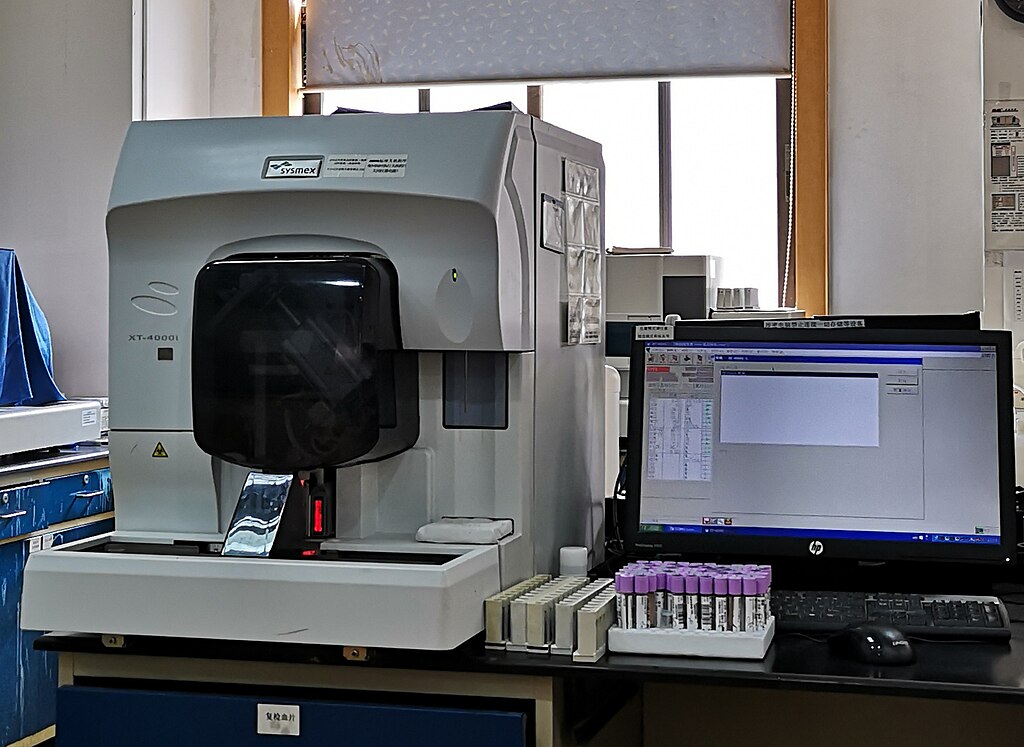
Source: WikiCommons
A hematology auto analyzer measures major blood components, such as:
- RBC count
- WBC count
- Hemoglobin
- Hematocrit
- Platelets
Many hematology analyzers use impedance technology or flow cytometry for cell detection and classification. High-end models can process up to 60 samples per hour. This gives us the results in under a minute. What’s more, many compact systems now integrate with laboratory and hospital information systems (LIS/HIS), offer automated sample handling, and feature intuitive touchscreen interfaces.
Built-in calibration software supports quality assurance, while portable formats have significantly reduced the footprint of POC blood testing labs. Onboard AI modules further enhance consistency in calibration, quality control, and error detection.
The choice of a reliable hematology auto analyzer remains indispensable for accurate reporting. Today, clinicians can use point-of-care test results from these systems to make timely treatment decisions at the bedside or in decentralized settings.
Differential Cell Counter—Why It Matters
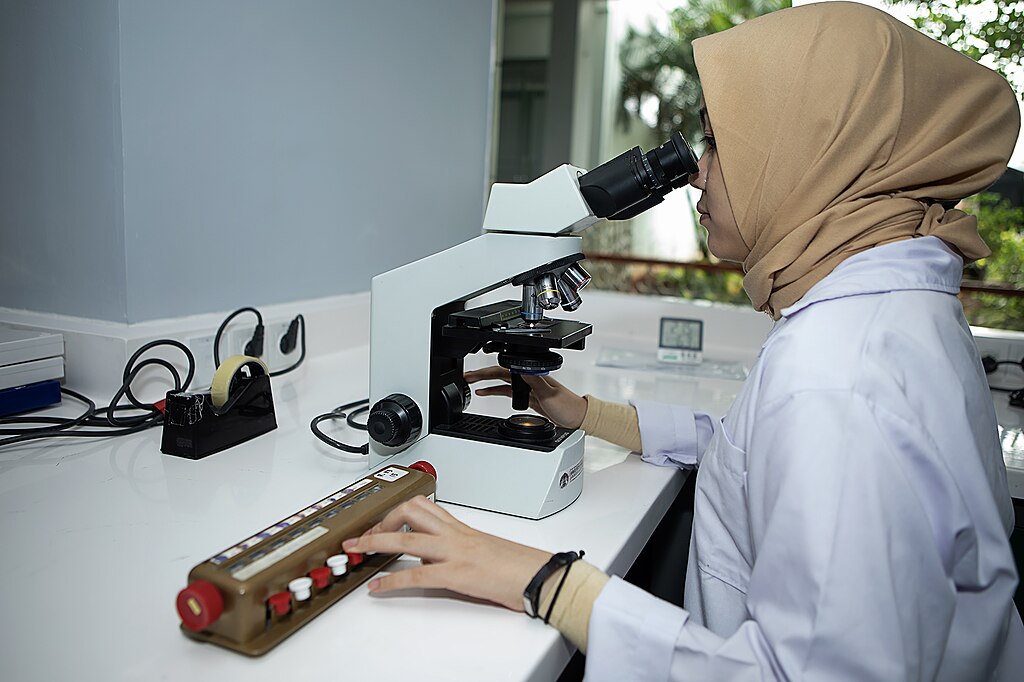
Source: WikiCommons
The role of a differential cell counter is to classify white blood cells into subtypes such as:
- Neutrophils
- Lymphocytes
- Monocytes
- Eosinophils
- Basophils
Keep in mind that manual differentials require a microscope-based review of at least 100 cells, which is time-intensive and operator-dependent.
Automated systems now leverage digital imaging and artificial intelligence to accelerate classification with high accuracy. When integrated with a hematology analyzer, these solutions can deliver a full CBC with differential reporting in a single workflow. This significantly reduces turnaround time, enabling rapid diagnosis of infections, inflammatory conditions, immune disorders, and hematologic malignancies.
Furthermore, the advanced differential cell counter modules that are integrated into portable blood test devices minimize subjectivity in morphological interpretation. This ensures that the results are reliable, which makes these tools critical in modern diagnostics.
Point-of-Care Blood Testing in the Middle East
The Middle East and Africa point-of-care blood testing market is projected to grow at a CAGR of 12.3%. By 2031, this market is estimated to reach USD 6.1 billion. On the other hand, the regional in‑vitro diagnostics (IVD) segment is expected to reach USD 2.15 billion by 2032 at a CAGR of 4.1%, according to MarketsandMarkets.
Healthcare systems in the region face some challenges, especially with chronic and infectious diseases. More specifically, there is a high prevalence of diabetes mellitus and tuberculosis. Today, GCC countries are investing heavily in healthcare decentralization and have adopted POC blood testing platforms capable of performing complete blood counts and differential analysis. These devices are ideal for underserved areas, mobile clinics, and emergency care units.
A Smarter Future for Blood Testing: NOUL’s miLab™ BCM
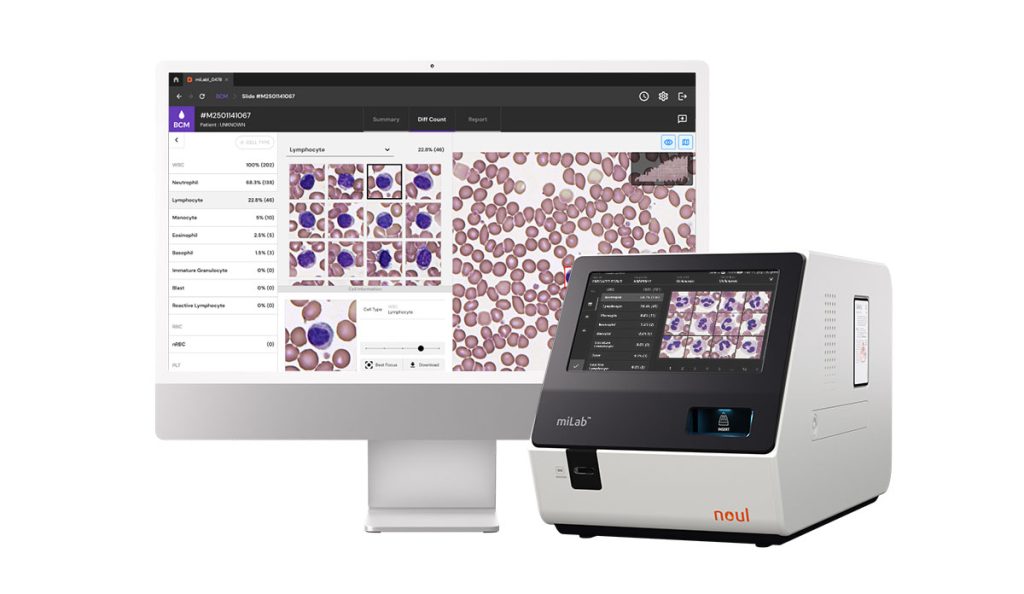
Source: NOUL
NOUL’s miLab™ BCM represents a smarter future for hematology analysis and point-of-care blood testing. This portable platform combines full CBC and morphology analysis with on-device AI. On-device intelligence uses an integrated AI chip to classify cell populations without a need to access the cloud or external computers.
The platform incorporates NGSI (Next-Generation Staining and Immunostaining) technology, a US-patented, solid-state staining method developed by NOUL. NGSI is an eco-friendly and fully automated staining technique that does not require liquids or reagents, unlike traditional methods. Its compact, multiplex-compatible format enables advanced point-of-care (POC) diagnostics without the complexities of conventional lab workflows. This innovation greatly improves diagnostic versatility at the point of care, especially in decentralized and resource-limited settings.
Here are the advantages of this system:
Rapid Results: Delivers high-precision results within 20 minutes
On-Site Usability: Battery-powered operation enables use in settings without reliable electricity
Workflow Compatibility: Supports standard glass slides for seamless integration into existing lab routines
Users can access detailed reports through an intuitive interface, which is very useful for performing rapid decision-making in clinics, community health centers, and mobile units. Note that this system is already deployed in global public health programs.
Most recently, NOUL entered into a public procurement agreement led by Kuwait’s Ministry of Health, enabling its participation in the national malaria screening program. This marks NOUL’s second expansion in the Middle East, following Saudi Arabia, and reflects its growing role in regional diagnostic infrastructure. The contract includes deployment of miLab MAL™, miLab BCM™, and dedicated cartridges across the program.
Conclusion
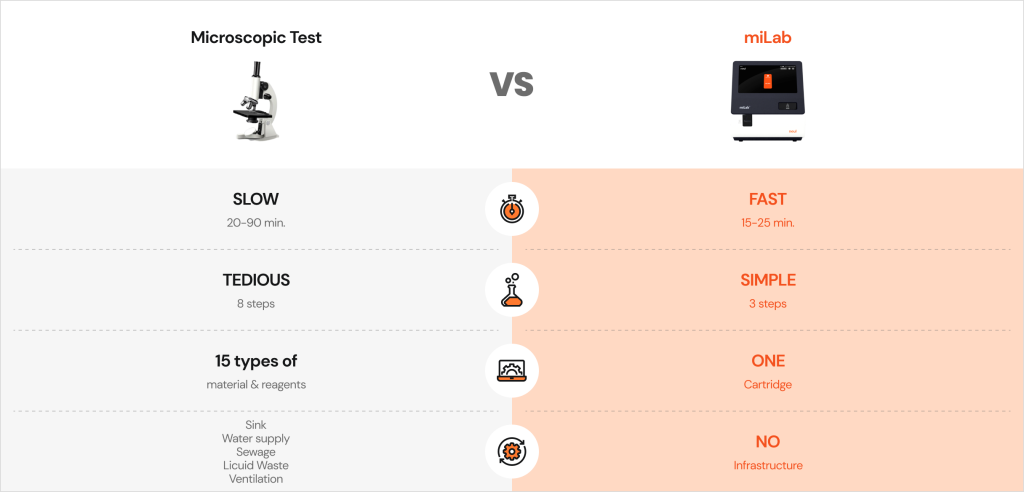
Source: NOUL
AI-mediated hematology analyzer devices allow for faster, more accurate, and more accessible blood diagnostics. Automated differential cell counters and morphological analysis are no longer limited to large laboratories.
Portable platforms such as miLab™ BCM support decentralization, speed, and precision in point-of-care blood testing. For distributors or providers in the Middle East that want to expand diagnostic reach, NOUL’s miLab™ BCM provides a field-proven solution.
Discover how miLab™ BCM can transform your diagnostic capabilities—whether in hospitals, mobile clinics, or emergency care units. Reach out to NOUL today to explore partnership opportunities, request a demo, or learn how to bring lab-grade hematology testing to the point of care.

